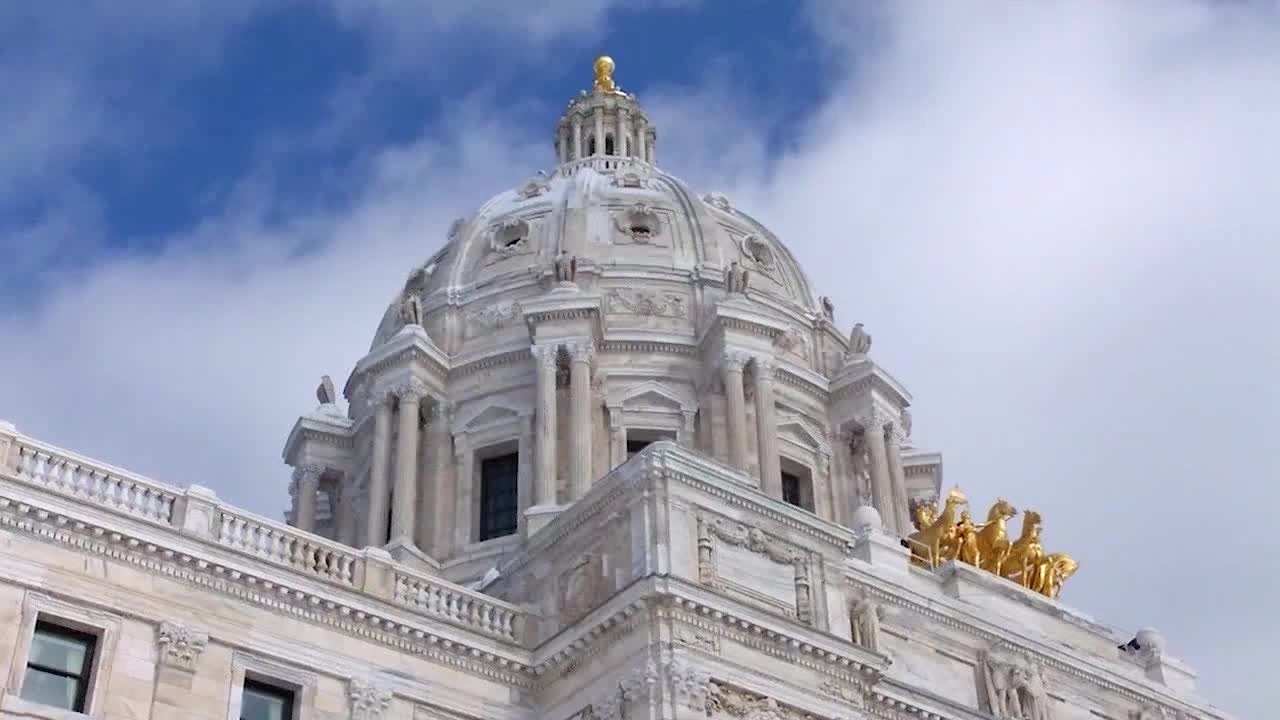OLA says Minnesota’s COVID-19 emergency spending mostly followed laws

(FILE/KSTP-TV)
A newly released report says the state of Minnesota’s COVID-19-related emergency purchases mostly complied with laws but there were some errors.
The Office of the Legislative Auditor (OLA) released its report Thursday morning, saying that eight of the 18 state entities it reviewed had at least some issue with emergency getting or using emergency purchasing authority, managing COVID-19 supplies, funding, payments, support for expenditures or final reporting on emergency spending. Overall, the auditors also found that state entities don’t fully understand the governor’s or Minnesota Department of Administration’s (MDA) emergency purchasing authority.
OLA’s audit covered all emergency purchases from Jan. 1, 2020, through April 30, 2021, plus the emergency expenditures through the end of 2021.
The report notes that the pandemic posed several challenges to state entities, which had to act quickly to address immediate needs, procure goods and services and support statewide operations. The state’s laws give both the governor and the commissioner of MDA the authority to make emergency purchases or delegate that authority to others in state agencies, but there are still rules they have to follow.
According to OLA, the 18 state entities audited made 637 emergency purchases during the pandemic for a grand total just shy of $400 million. The vast majority of that was by the Minnesota Department of Health (MDH), which made 469 of those purchases, accounting for around $350 million.
The report notes at least a few instances where state agencies made emergency purchases without first getting the required authorization from MDA or the governor, and at least one of those was due to confusion about what needed to be done to get emergency approval. Additionally, the Minnesota Department of Education got emergency approval for trauma toolkits that OLA said didn’t meet an emergency need.
Additionally, OLA’s report says it found that Gov. Tim Walz and Lt. Gov. Peggy Flanagan charged some costs related to civil unrest to the federal Coronavirus Relief Fund and staff didn’t keep proper documentation of all transactions.
Other findings noted in the report state:
- MDH, the Minnesota Department of Employment and Economic Development (DEED), and the Office of the Secretary of State (SOS) made some inaccurate payments, which resulted in at least $276,000 in overpayments and $59,000 in underpayments, and those overpayments weren’t always recovered.
- State entities didn’t always keep adequate documentation for purchases.
- Some state departments paid incorrect sales and use taxes.
- MDA didn’t require entities to send in final reports on emergency purchases of more than $5,000.
Several state agencies’ responses to OLA’s findings were included in the report, most of which highlighted the challenges the agencies faced and their happiness with the overall results.
DEED’s Deputy Commissioner Evan Rowe noted the department’s payment accuracy rate was 99.8% and all transactions followed state laws.
“That our teams were able to accomplish this despite the unprecedented demands placed upon them speaks to their professionalism, diligence, and dedication to the people of Minnesota,” Rowe wrote in part.
Department of Human Services Commissioner Jodi Harpstead said in her response that DHS resolved the incorrect tax payments noted by OLA and is creating a contingency plan for future emergency purchase orders.
MDA Commissioner Alice Roberts-Davis’ response said the department “takes its responsibility to ensure compliance with legal requirements seriously and we are pleased that the audit did not identify any fraud, waste, or abuse.” She added that the department is taking OLA’s recommendations “under consideration.”
New Minnesota Department of Education Commissioner Willie Jett II says the department still believes its emergency trauma toolkit purchase was in fact an immediate need, despite OLA stating the need was there before the pandemic.
New MDH Commissioner Brooke Cunningham responded to each of OLA’s findings involving the department and said she’s “pleased that your audit confirmed the integrity of our work and did not identify any unallowable or questioned costs, or any evidence of fraud, waste, or abuse” involving MDH. However, she disagreed with OLA’s conclusion that better emergency purchasing guidance is needed or that there was confusion about authority for making the purchases. Cunningham also defended the department’s work against other findings but said it had corrected its inaccurate payments.
Chris Schmitter, the governor’s chief of staff, also disagreed with OLA’s funding that entities need a better understanding of emergency purchasing authority, saying that “seems to conflict with the Legislature’s decision to enact broad and overlapping authorities to address emergencies” and said staff shouldn’t be expected to remember specific purchasing processes for such old transactions. Schmitter also claimed the Coronavirus Relief Fund does cover other expenditures but the governor’s office has removed the nearly $3,000 charge for civil unrest services from the fund.
Finally, Secretary of State Steve Simon said his office has already worked to correct inaccurate tax payments and implement better controls for future emergency spending.
To read the full report and complete department responses to OLA, click here.